|
Jewel Roque
On the way home after an evening outing with some friends, I asked my youngest if he had a good time. “Sort of,” he answered. “But the kids on the playground were teasing me.” “About what?” I asked. He sometimes reacts strongly to comments, so I assumed it wasn’t a big deal. “Eric said he saw a picture of me sleeping while doing homework, and then Leslie said she saw it too, and all the kids started laughing.” I didn’t know how to respond. I had posted a photo on Facebook of my son sleeping at his desk, his homework beside him. I had thought it was cute. My son puts his all into his activities, but when he’s tired, he’s tired. And he sleeps. It runs in my family. My siblings and I know that once we reach a certain point of fatigue, we can’t push past it. Sleep is the only solution. My son has somehow learned that early. When he’s tired, even if it’s when we’re about to sing happy birthday at a party or when he’s supposed to be finishing up his homework, he will sleep. My husband and I understand that and work around it. Our son’s teachers, for the most part, have also been understanding that at times he might fall asleep at his desk. I try to get him to bed on time when he’ll have an early morning or a long day. Parents and teachers generally understand these things. Other kids often don’t. When I posted the photo, I didn’t think about the possibility of parents showing their kids the “cute” post, which in the mind of a child might not be “cute” but “silly” or “funny” or “embarrassing.” Material to tease with. Something I had done unthinkingly caused my son hurt. It cast him in a negative light in the minds of his friends. They probably forgot about it a minute later, and they were all playing again. But that moment, I had to admit to my boy that it wasn’t their fault; it was mine. I pulled up the Facebook photo and showed it to my son, saying, “I posted this photo of you the other day. I didn’t think anyone would tease you about it.” Then I promised, “I won’t post anything of you unless I ask you first.” I already have that agreement with other members of my immediate family, but I didn’t think it would matter to my youngest. I was wrong. It’s strange I would make a mistake like that. Thinking back to my own childhood, my strongest emotions resulted from teasing. I can remember half a dozen separate occasions, before the age of five, where I was brought to tears by teasing. Painful moments tend to remain in the mind and the heart long after the echo of the actual words fade. How often do my own words or side comments have the same effect as those children on the playground? When I’m trying to focus on work, and after one too many interruptions, snap at the kids, telling them to leave me alone so I can get something done. Or when they’re arguing and I can’t stand the contention, so I tell them I don’t care who said what and whose fault it is—I just want peace. After careful reflection, I vowed to see every moment of life through the eyes of my child.That’s not a promise I can make, nor one I can keep, but it is something I can try. Not a once-and-for-all decision, but a moment-by-moment choice. To slow down. To think. To pray. To love. Photo and article courtesy of Activated magazine. Used by permission.
0 Comments
Disabilities cover a wide range. Some are obvious—such as a child with a physical disability who uses a wheelchair, or a child with a visual impairment who uses a cane to navigate when walking. Other disabilities may be more “hidden”—for example, children who have learning disabilities or autism spectrum disorder. Chances are that at some point your child will have a classmate with a disability. Just as you guided your very young child when he or she began to befriend others, you can encourage your child to learn about and be a friend to children who have special needs. Basic ideas to share with your child
Try to use clear, respectful language when talking about someone with special needs. For a younger child, keep explanations simple, such as, “She uses a wheelchair because a part of her body does not work so well.” Reinforce with your child that namecalling— even if meant as a joke—is always unacceptable as it hurts people’s feelings. Getting to know children with special needs Paradoxically, when it comes to approaching someone with a disability, children may be better at it than their parents because they are less inhibited. Some adults—especially those without previous exposure to people with special needs—may be more timid. Worried about appearing intrusive or insensitive, they may not know what to say or do. “The other kids are great,” [Jasmine’s] mom says, “They are very direct, which is good. They like her and want to interact with her.” However, if your child (or you, for that matter) is unsure about approaching a child with a disability, here are some helpful tips:
Learning more about special needs Reading or learning about a disability is a great way to further understand a child’s experiences. It may also help dispel any questions you or your child may have. Your local library and librarian can be a great resource for finding age-appropriate books and materials. Deborah Elbaum, M.D. is a parent of three children and lives in Massachusetts. She is a volunteer for the disability awareness program taught at her children’s school. Article courtesy of Motivated magazine. Used with permission. Photo in public domain.
By Amy Joyce, Washington Post Earlier this year, I wrote about teaching empathy, and whether you are a parent who does so. The idea behind it is from Richard Weissbourd, a Harvard psychologist with the graduate school of education, who runs the Making Caring Common project, aimed to help teach kids to be kind. I know, you’d think they are or that parents are teaching that themselves, right? Not so, according to a new study released by the group. About 80 percent of the youth in the study said their parents were more concerned with their achievement or happiness than whether they cared for others. The interviewees were also three times more likely to agree that “My parents are prouder if I get good grades in my classes than if I’m a caring community member in class and school.” Weissbourd and his cohorts have come up with recommendations about how to raise children to become caring, respectful and responsible adults. Why is this important? Because if we want our children to be moral people, we have to, well, raise them that way. “Children are not born simply good or bad and we should never give up on them. They need adults who will help them become caring, respectful, and responsible for their communities at every stage of their childhood,” the researchers write. The five strategies to raise moral, caring children, according to Making Caring Common: 1. Make caring for others a priority. Why? Parents tend to prioritize their children’s happiness and achievements over their children’s concern for others. But children need to learn to balance their needs with the needs of others, whether it’s passing the ball to a teammate or deciding to stand up for friend who is being bullied. How? Children need to hear from parents that caring for others is a top priority. A big part of that is holding children to high ethical expectations, such as honoring their commitments, even if it makes them unhappy. For example, before kids quit a sports team, band, or a friendship, we should ask them to consider their obligations to the group or the friend and encourage them to work out problems before quitting. Try this • Instead of saying to your kids: “The most important thing is that you’re happy,” say “The most important thing is that you’re kind.” • Make sure that your older children always address others respectfully, even when they’re tired, distracted, or angry. • Emphasize caring when you interact with other key adults in your children’s lives. For example, ask teachers whether your children are good community members at school. 2. Provide opportunities for children to practice caring and gratitude. Why? It’s never too late to become a good person, but it won’t happen on its own. Children need to practice caring for others and expressing gratitude for those who care for them and contribute to others’ lives. Studies show that people who are in the habit of expressing gratitude are more likely to be helpful, generous, compassionate, and forgiving—and they’re also more likely to be happy and healthy. How? Learning to be caring is like learning to play a sport or an instrument. Daily repetition—whether it’s a helping a friend with homework, pitching in around the house, or having a classroom job—make caring second nature and develop and hone youth’s caregiving capacities. Learning gratitude similarly involves regularly practicing it. Try this • Don’t reward your child for every act of helpfulness, such as clearing the dinner table. We should expect our kids to help around the house, with siblings, and with neighbors and only reward uncommon acts of kindness. • Talk to your child about caring and uncaring acts they see on television and about acts of justice and injustice they might witness or hear about in the news. • Make gratitude a daily ritual at dinnertime, bedtime, in the car, or on the subway. Express thanks for those who contribute to us and others in large and small ways. 3. Expand your child’s circle of concern. Why? Almost all children care about a small circle of their families and friends. Our challenge is help our children learn to care about someone outside that circle, such as the new kid in class, someone who doesn’t speak their language, the school custodian, or someone who lives in a distant country. How? Children need to learn to zoom in, by listening closely and attending to those in their immediate circle, and to zoom out, by taking in the big picture and considering the many perspectives of the people they interact with daily, including those who are vulnerable. They also need to consider how their decisions, such as quitting a sports team or a band, can ripple out and harm various members of their communities. Especially in our more global world, children need to develop concern for people who live in very different cultures and communities than their own. Try this • Make sure your children are friendly and grateful with all the people in their daily lives, such as a bus driver or a waitress. • Encourage children to care for those who are vulnerable. Give children some simple ideas for stepping into the “caring and courage zone,” like comforting a classmate who was teased. • Use a newspaper or TV story to encourage your child to think about hardships faced by children in another country. 4. Be a strong moral role model and mentor. Why? Children learn ethical values by watching the actions of adults they respect. They also learn values by thinking through ethical dilemmas with adults, e.g. “Should I invite a new neighbor to my birthday party when my best friend doesn’t like her?” How? Being a moral role model and mentor means that we need to practice honesty, fairness, and caring ourselves. But it doesn’t mean being perfect all the time. For our children to respect and trust us, we need to acknowledge our mistakes and flaws. We also need to respect children’s thinking and listen to their perspectives, demonstrating to them how we want them to engage others. Try this: • Model caring for others by doing community service at least once a month. Even better, do this service with your child. • Give your child an ethical dilemma at dinner or ask your child about dilemmas they’ve faced. 5. Guide children in managing destructive feelings. Why? Often the ability to care for others is overwhelmed by anger, shame, envy, or other negative feelings. How? We need to teach children that all feelings are okay, but some ways of dealing with them are not helpful. Children need our help learning to cope with these feelings in productive ways. Try this: Here’s a simple way to teach your kids to calm down: ask your child to stop, take a deep breath through the nose and exhale through the mouth, and count to five. Practice when your child is calm. Then, when you see her getting upset, remind her about the steps and do them with her. After a while she’ll start to do it on her own so that she can express her feelings in a helpful and appropriate way. Image courtesy of Wikipedia
Elaine Gast
Ravi Shah is wild about dinosaurs. He knows more about them than any adult I know (maybe with the exception of his mom), and he can rattle off a dizzying number of dinosaur facts faster than you can say “tyrannosaurus.” When I first met the lively 7-year-old, he led me to his kitchen counter, where he had arranged a showcase of claysculpted dinosaurs. Next to each of the orange and blue blobs of clay, he had attached a price tag—50 cents, 75 cents, one dollar. “I’m selling them for charity,” he told me matter-of-factly. “Want to buy one?” Ravi’s passion for dinosaurs may not be unlike that of other boys his age, but what is different is his pursuit in giving. He’s been doing it since he was 2. As Ravi has gotten older, the Shahs have continued to teach him about giving and helping others. “We have a ‘new toy’ rule in our house,” Shah said. “Every time he gets a new toy, he must donate one he no longer plays with. We let him decide which toys he wants to give away, and then together we take the items to the Goodwill.” Ravi’s giving doesn’t stop there. He comes up with clever ways to raise money for charity—from lemonade stands to concerts to selling more clay animals over the Internet (even in the first grade, he had his own website). “We give him ideas on different charities he can donate to, but let him decide where the money goes,” Shah said. Many families are interested in teaching their children the value of giving, but they don’t always know the best way to do it. According to Susan Crites Price, author of The Giving Family: Raising Our Children to Help Others (Council on Foundations, 2001), it’s important to start young. “Habit gets instilled at an early age, and young kids can do a lot,” Price said. Preschoolers, for example, can go with the family to volunteer at a soup kitchen, or help pick up litter around the neighborhood. “That doesn’t mean that for teenagers it’s too late, but the earlier they start giving, the more it becomes a habit.” In her interviews with parents and experts nationwide, Price found there are several keys to raising charitable children. Here is what she recommends: • Make giving the rule, rather than the exception. “We teach kids to brush their teeth because it’s good for them. We also need to teach them to give and serve—because that’s good for them too.” If you find the right projects, Price says, they won’t complain. • Show and tell. “While kids may see us volunteering and writing checks, we should also tell them why we are doing it.” This will help them make those decisions for themselves when they get older. • Let them lead. “If we let children decide for themselves how to give their time or their money, they are more likely to enjoy it.” It’s good to give them ideas, of course, but better to let them choose • Find volunteer projects. There are plenty of places to volunteer— schools, community groups, faith-based organizations, clubs, and more. But you don’t need to rely on outside groups for volunteer opportunities. “Kids can create their own volunteer experience — baking cookies for an elderly neighbor or spending time with a special needs child, for example,” Price says. “Look to your own community first.” • Tie it to something they can see. It makes a better impression when you show kids what they’re giving to, and why. According to Shah, “It’s hard for kids to imagine that other people aren’t as fortunate as they are. Taking them to an orphanage (or another place where they can see people in need) lets them understand why it’s important to help.” • Consider ways to give more. While no donation is too small, some parents will match what their child wants to give, sending the charity a more meaningful amount. According to Price, one parent even paid her child for his volunteer hours, giving him the opportunity to then donate the money to the same charity. • Take the time to do it. Kids and parents are busy people. There is soccer practice, music lessons, school, and work—and, of course, getting dinner on the table. “Be intentional about the family giving,” Price recommends. “Make time for it. Make it a priority.” If you want the idea of giving to stick with your kids, don’t just take time to do it—do it often. Giving, after all, is more than a one-time event. “It’s really something that has to be a regular part of your life,” Shah said. “If they see you do it and hear you talk about it often, they will want to do it too.” Children are little people.—And if we’d just stop thinking about them as “children” and think about them as people, we’d get a lot further in understanding them and their problems! So why don’t we just start thinking about them as we do about ourselves? People are complex. Children are people too and their problems are also complex. Their feelings are much the same as adults’, and the experiences they go through are very similar to things we go through, only harder for them to understand.—Children are much more vulnerable than adults, and many things they have to go through which though small to us, may seem monumental or even traumatic to them at the time because they don’t have the experience to understand them, and they haven’t been assured like we have that everything will work out in the end! So you have to treat them even more carefully, tenderly and with more consideration than adults. Try to put yourself in the child’s place. Put yourself in as close a situation as you can think of to your child’s situation and think about how you would feel—then you can get a better understanding of him and his problem. Text © The Family International. Photo courtesy of publicdomainpictures.net By Anna Perlini It was a particularly hot, muggy summer day, and Jeffrey and I had already been traveling for a few hours when we plopped down in a stuffy bus station waiting room in northern Italy. “Did I really have to come?” he muttered. How had I gotten this idea? Dragging a 14-year-old away from his friends to visit his grandparents—not exactly a teenager’s idea of fun! We had another hour before we needed to catch the bus that would take us the rest of the way, and I didn’t know which was worse—the stale air in the waiting room or the thick air between us. “Would you like some ice cream?” I asked. That usually did the trick, or at least it used to. Not this time. “No!” came his sharp reply. “I don’t need it.” My little boy was growing up. My patience was starting to run out. “Well, I’m going to get some for myself.” I grabbed my purse and headed for the station café, asking Jesus to restore good communication between Jeffrey and me. When I returned, Jeffrey was talking with a boy a year or two older. “Emmanuel is Romanian,” Jeffrey explained as he introduced us, “but he speaks Italian well. He’s living in a trailer nearby with his mom and two younger sisters, and doing odd jobs to help support his family.” Emmanuel was bright, well-mannered, and said he was willing to do just about any kind of work. He and Jeffrey continued the animated conversation that my return had interrupted. When Jeffrey told Emmanuel that he had gone to a summer camp in Timișoara, Romania, Emmanuel lit up. “That’s where I come from!” he said. I could tell it really made Emmanuel’s day to find a boy about his age whom he could talk to and relax with. Also, Jeffrey seemed very interested in this boy’s life and in meeting someone about his own age who was fending for his mom and sisters. When it was time to catch our bus, Jeffrey prayed for Emmanuel and his family and then gave Emmanuel one of the gospel tracts we had with us, along with some money for his family. “Mom,” Jeffrey whispered as we took our seats, “that was a hundred times better than ice cream!” Sometimes when we are upset or discouraged, all it takes to make us forget our frustration and feel better is a little giving of ourselves. Anna Perlini is a cofounder of Per un Mondo Migliore (www.perunmondomigliore.org), a humanitarian organization active in the former Yugoslavia since 1995. Article originally published in Activated magazine.
The “Do’s”
The "Don't's"
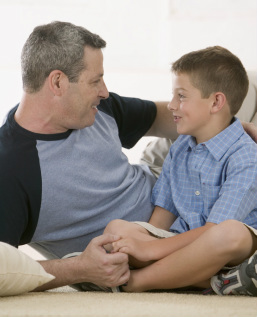 * Never lose faith in your children! If you can’t determine what’s right or wrong when a child claims innocence in some situation, and there’s no way to prove otherwise, it is almost always the wisest thing to let it pass, rather than risk punishing or judging unjustly for something. Try taking your child’s word for it!—such love will prove your faith in them and will inspire them not to disappoint your trust. Showing a child that you trust and believe in him shows him that you love him. * Try putting yourself in your child’s place as much as possible. This will give you a much better understanding of him. Make it a habit to try to see things through their eyes and understanding. Ask yourself, “what if this were I? How would I want to be treated in this situation if I were in his shoes?—if I were only 5 years old and were the one being laughed at by the adults, how would I feel?” What may seem cute or funny to us, may be very embarrassing and humiliating to a child. Most of us know what it’s like to be embarrassed, hurt or slighted by others. Realizing that such unpleasant experiences can be much more traumatic and painful to a small inexperienced child should cause us to do our best to spare them from such incidents. By putting yourself in as close a situation as you can think of to your child’s situation, imagining how you would feel, you will gain a much better understanding of him and his feelings. * Praise and encouragement are one of the most important parts of child training. Be generous with praise and appreciate your child’s good intentions and strong points. For example, if your son makes a failing grade on his school work, you can still find something to commend him for, his neat handwriting, perhaps. There’s always some good to be praised and appreciated. All children thrive on praise. It’s more important to praise a child for his good deeds and his good behavior than it is to scold him for his bad behavior. Try to always accentuate the positive! Of course, it’s important when giving praise and appreciation to remain honest and sincere, and it must relate to him or her. For example, you may consider your pre-teen daughter to be beautiful, but if she perhaps doesn’t compare favorably to many others her age, in spite of your opinion and feeling on the matter, she could think that you are being insincere or falsely flattering if you are constantly telling her how beautiful she is. So why not commend her in some other positive area in which she excels and shines: her eloquence of speech or her good grades or her loving, sweet character and spirit. Be outspoken with praise for your children. Just about everyone loves kids, but it’s extremely important that the children know this by hearing you say it and seeing you show it. All these suggestions and pointers are ways to put love into action! Love is not “real” or practically applied without a living example by you and me, today’s parents who are molding the future! The world of tomorrow is what the mothers and fathers of today make it, according to the way we raise our children! Excerpted from writings by D.B. Berg. © The Family International. Used with permission.
 Love has creative power, and in the home love does its magic by engendering unselfish acts and helping each family member see the others in a positive light. Everyone wants to be understood, accepted, and loved for who he or she is, and the home is a God-created environment where these things can thrive. There are also things that work against love in the home—enemies of love, if you will. Disagreements between children and parents and sibling rivalries are a couple of the obvious ones, but there are other problems that are more subtle and therefore even more dangerous—selfishness, laziness, indifference, criticalness, nagging, taking each other for granted, and thinking and talking negatively about one another, to name a few. These usually begin with small, seemingly innocent incidents—finding excuses to not help out, squabbles over petty issues, little putdowns and sarcastic remarks—but unless you recognize these as attacks on your family’s love and unity, they will develop into bad habits that will take a terrible toll on your family. It’s not enough to simply save the moment by sending the feuding parties to their separate corners, silencing the sarcastic, or pressing the shirker into service. That’s dealing with the symptoms, not the root problem, which is a lack of love. The only thing that will cure a lack of love is love itself, so ask God to bring more love into your home. Then cultivate that love through loving thoughts, words, and actions. *** Children remember things very clearly and are directly affected by their parents’ attitude and how their parents feel and think about them. So if you’re constantly speaking faith and positive things about your child, either to him or to others, and if you’re thinking positive things about your child, this will have a good, faith-building, positive effect on your child, and he’ll become more like what you think of him and expect from him. But if you are thinking or speaking negatively about your child, either directly or indirectly to him, it will have the effect of making him think negatively about himself and hinder his happiness and self-esteem, his performance, and the way he sees himself. Faith begets more faith; positive attitudes foster more positive attitudes in both yourself and those around you. It takes faith in someone to bring out the best in them. © Aurora/The Family International. Used with permission. The primary factor in raising children is love. If parents can just learn to treat their children with love and consideration, the children will feel loved and secure. Most parents can't be with their children all the time, but it's difficult for small children to understand that. Children think they should be the most important things in the world to their parents, so when the parents can't show them constant attention because of other obligations, it hurts the children--and of course, the more children you have, the less individual time and attention you can give each one. That's why it's so important for parents to tune in to their children and give them love and attention when they do have the opportunity. Give each one lots of love and encouragement, because words have the power to build them up and help them feel loved. "Look what a big boy you are! We're so proud of you. You've learned so much!" Say things that will let them know they really are special to you. Small children, especially, don't yet have a concept of time, so if you give one child something and tell the others that theirs will come next time, "next time" will probably seem a long way away and very nebulous. So in most cases when you give one something, you should try to do a little something special for the others too. You can't and shouldn't treat all of your children the same all the time. Each needs to know they are special in their own way. And when one needs something that the others don't, they have to be taught that it's according to need, not because one is more loved. If you take one out to get a needed pair of shoes, for example, and you bring the others back a little toy or something that may cost only a few cents, this shows that you love them and remembered them too. A lot of adults don't realize how important it is to explain things to children. You can't just assume that they understand. How can they understand hardly anything unless you explain it to them? Most adults don't take things without some kind of explanation, and children have as much right to an explanation as anybody. If you think there could be any question in their minds or hurt feelings, explain. Even if they can't understand everything you say, just the fact that you try to explain it conveys to them that you're concerned about their feelings, and that will help. It's nearly always a problem when somebody else comes along, like a new baby, who they think is going to take their place. Children's feelings are just the same as adults', only difficult situations can be even more traumatic for children when they haven't experienced those things before and therefore don't have the assurance that things usually work out in the end. That's why children are so much more vulnerable than adults, because of their very limited experience. So you have to treat children even more carefully and tenderly and considerately than adults. It breaks my heart when I see parents in public places cuff their child on the head or lash out over something that the poor child probably didn't understand in the first place. It's tragic! Children are more sensitive and more easily hurt than adults. They instinctively love and trust their parents, and to destroy that is really sad! A little love goes a long way! Children are bound to have problems, but no matter what the problem stems from, love can correct it. "Love covers over all wrongs" (Proverbs 10:12 NIV). Just a little love and concern can make up for a lot of mistakes and failures, no matter who or what is to blame. Love is the answer! Excerpted from Activated Magazine. Used with permission.
|
Categories
All
Archives
March 2024
LinksFree Children's Stories |

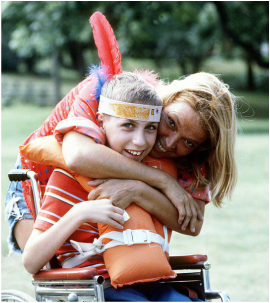
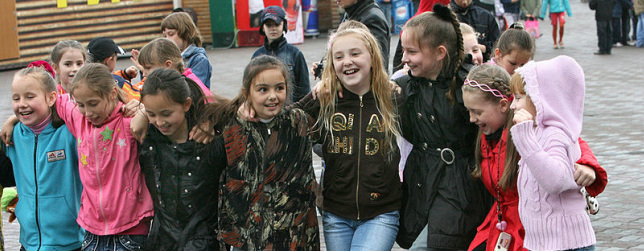
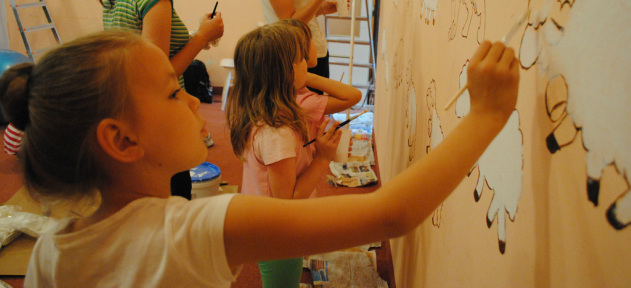
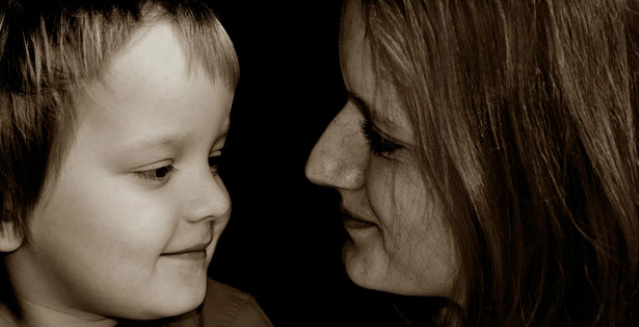

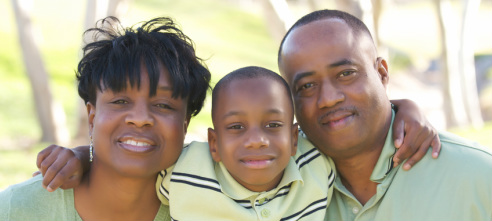

 RSS Feed
RSS Feed
